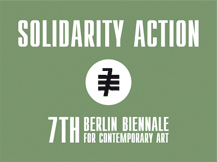The practice of occupying abandoned theaters or those threatening to close is one of the most interesting phenomena on the Roman cultural scene. Recently a movement has taken form involving knowledge workers (without job security) aware that the time for action is now. From the outlying zone of Ostia to Teatro Valle, through many independent places of cultural production in the city, a circuit is emerging that has surprising productive results.
Freelancers with no job security par excellence, artists are learning to understand and recognize their own emergency situation, connecting it with the other issues of protest in the present: income, housing, welfare, and the movement in Valle di Susa. The theater becomes “community in conflict”, it constructs unprecedented alliances and learns to get away from the logic of patronage long cultivated by the center-left in a lethal self-referential decline. The experience of self-management restores dignity and the desire to participate, and asserts the central importance of the territory, where the theater takes on meaning, developing the network of relations with the neighborhood/city that hosts it and questions it. Stripped of these relations, the theater declines into a mere repetitive ritual, losing its civil and political function. The gradual closing of Rome’s historic theaters (the latest was Teatro Brancaccio) is accompanied by the rebirth, clandestine, from the ground up, of places confiscated from decay, regenerated and restored to use by citizens. Artists reinvent their space, citizens take back their rights. Culture is a fundamental of citizens and the vital practice of cultural occupations is a necessary poetics. This is why the Teatro del Lido di Ostia, now occupied for two years, puts forward a model of a participative public theater: a system of governance that made it unique on the national scene well before its closing ordered by the mayor Gianni Alemanno.
Participation, co-design, territory and networking become the key words of an experience whose mission is empowerment: only by reinforcing individuals and groups can civil society as a whole continue to grow, and art – with its symbolic and communicative power – becomes the human and social device indispensable for the maintenance of democracy. In this scenario, the challenge of formal, legal and cultural definition of the intuitions produced by self-management now begins. Teatro del Lido di Ostia promotes the idea of a “master plan for culture”: a codified system of participatory procedures based on the model of the legislation no. 328/2000 and composed of tables of analysis, co-development, co-assessment of social and cultural services, for which at the moment only 1% of public expenditure is allotted. While it is urgent to get the cultural system in line with European standards in terms of availability of resources, professional status and access to welfare, this task cannot be separated from the work of reclamation and moral regeneration that finds its complete meaning in the politics and poetics of cultural occupation.
FILIPPO LANGE
Member of the Teatro del Lido di Ostia, occupied in 2010 after years of inactivity.


